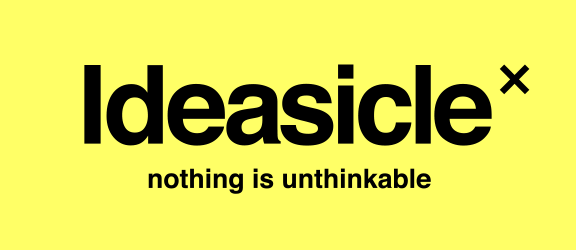Why Gut Instincts Are Your Secret Weapon in Creative Advertising
Ever nailed a campaign pitch on a hunch, only to rationalize it later? That's your brain's hidden genius at work. And we need more of that in advertising.
Consider this. Juan Manuel Fangio roars out of Monaco's tunnel in the 1950 Grand Prix in his Alfa Romeo, sunlight blinding, but something inside him screams “slow down!” despite no visible threat. He pays attention to his intuition and slows down—and dodges a pile-up around the approaching corner that could've ended him. Turns out, his subconscious caught the crowd's heads turned not towards him, as they normally would be, but towards something else around the corner: his periphery caught darker hairlines in the crowd instead of faces, signaling potential disaster ahead. Stories like this aren't luck. They're proof your mind processes chaos faster than you think, especially in creative fields where data can't capture everything.
As advertising pros, we're drowning in briefs, mood boards, and analytics. But what if those fleeting "aha" moments— the ones that are killer taglines or innovative visual twists—are your subconscious doing the heavy lifting?
Science says it's not mysticism; it's pattern recognition honed by experience
Take Malcolm Gladwell's Blink: thin-slicing, where experts make spot-on calls from slivers of info. For creatives, that's scanning a client’s brand-vibe or sensing a cultural shift and outputting gold. Neuroscientist Valerie van Mulukom at Cambridge calls the brain a "predictive machine," cross-referencing memories against real-time (unconscious) inputs to predict real outcomes. Or help us flag when an idea feels off.
Look at real cases. A firefighter evacuates a "contained" blaze on a weird gut vibe—subtle cues like hushed flames and spongy floors his mind fused into collapse imminent. Translate to ads: your instinct rejects a concept because it mismatches buried knowledge you can’t even verbalize from a decade of flops and wins.
In art authentication, experts like Federico Zeri gut-rejected a fake Greek statue despite a lab approving its authenticity. Something wasn’t right. Fingernails too modern, patina too even—details Federico’s internalized expertise flagged unconsciously. Sound like spotting why a storyboard bombs? Exactly.
Tennis coach Vic Braden predicts double faults pre-serve with eerie accuracy, from micro-tells in a player's form. Decades of observation turned into instant intuition.
For you, it's knowing a viral hook will land because it echoes that one campaign that exploded three years ago that you can’t even articulate now. But are we trusting our “knowing” enough? I doubt it.
Three key studies unpack this for creativity
Van Mulukom's predictive processing: Your brain simulates futures based on past patterns, sending gut signals when something aligns (or clashes) with creative potential. In ads, this turns vague briefs and complex data sets into breakthrough ideas.
Gladwell's thin-slicing experiments: Experts in high-pressure fields outperform data-crunchers by trusting rapid intuitions. A study on doctors showed intuitive diagnoses beat exhaustive tests in ambiguous cases—mirroring how top creatives pivot mid-brainstorm telling the team, “I just know.”
Joel Pearson's neuroscience at UNSW: Intuition pulls from "buried data streams," refinable with practice. His fMRI work links gut feelings to creative flow states, where subconscious inputs fuel innovation without overthink. Key phrase, “without overthink.”
Voices like Gavin de Becker in The Gift of Fear reinforce: Intuition should be respected because it always responds to real cues and opportunities. Psychology Today adds it's "pattern-matching from experience," essential for navigating the ad world's ambiguity and data addictions.
We need to remind ourselves that our intuition is our creative talent. It wins more pitches, it makes the agency valuable, it wins more awards.
Let your gut play
In creative pursuits, ignoring this seemingly magical edge means safer, blander work. But if you’re reading this, you're wired for bold. Next time a wild idea hits during a client call, don’t dismiss it, probe it. Voice it. It's your brain whispering “this could go big.” Reclaim and respect that internal radar—it's what separates good campaigns from unforgettable ones.
Besides, trusting your gut is cheaper, faster, and the reason you get paid the big bucks.
Share your gut-instinct creative wins in the comments—let's swap stories and ignite some ideas.
Will Burns is the Founder & CEO of the revolutionary virtual-idea-generating company, Ideasicle X. He’s an advertising veteran from such agencies as Wieden & Kennedy, Goodby Silverstein, Arnold Worldwide, and Mullen. He was a Forbes Contributor for nine years writing about creativity in modern branding. Sign up for the Ideasicle Newsletter and never miss a post like this. Will’s bio.



